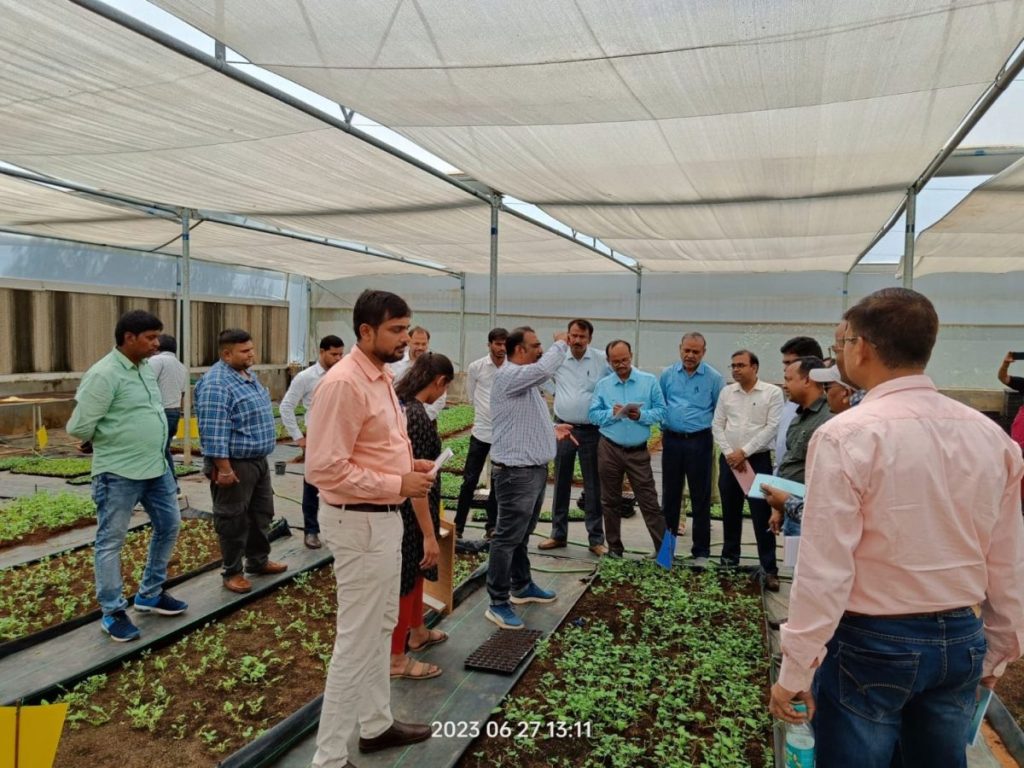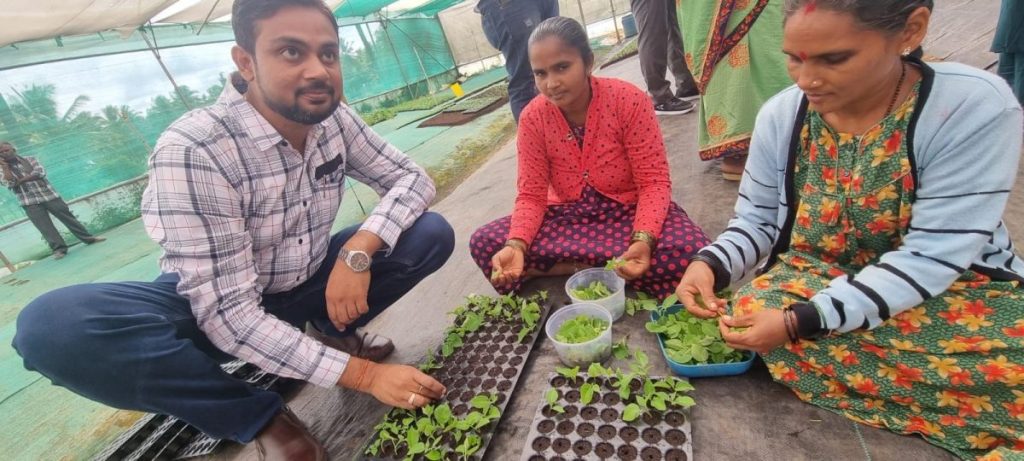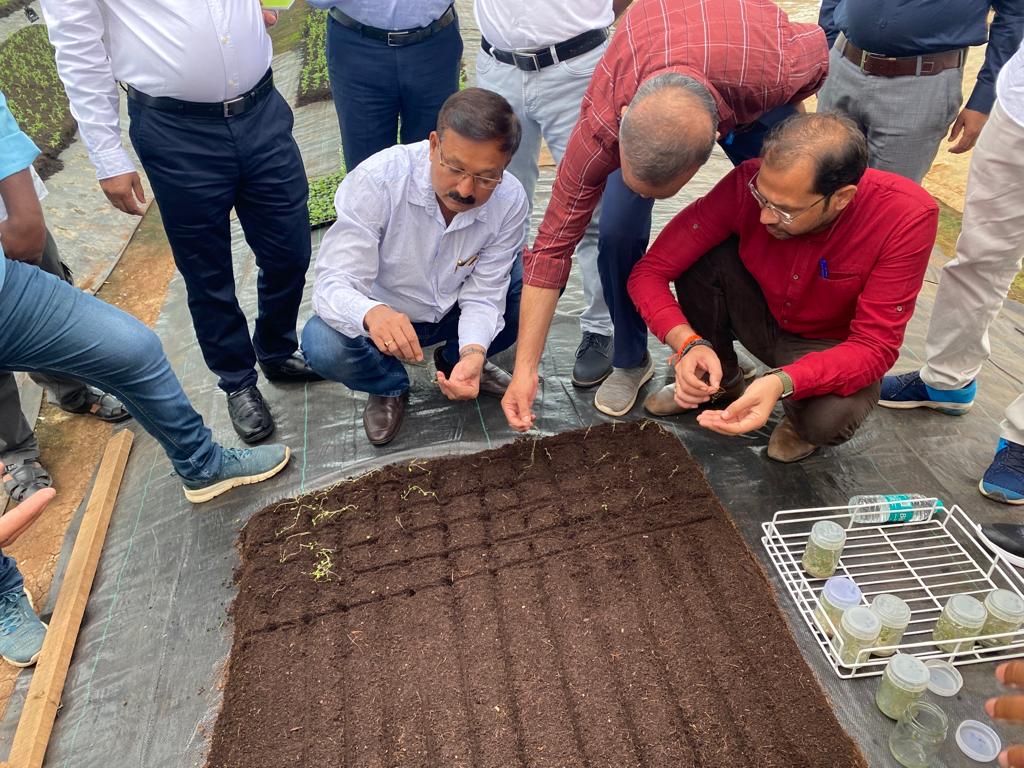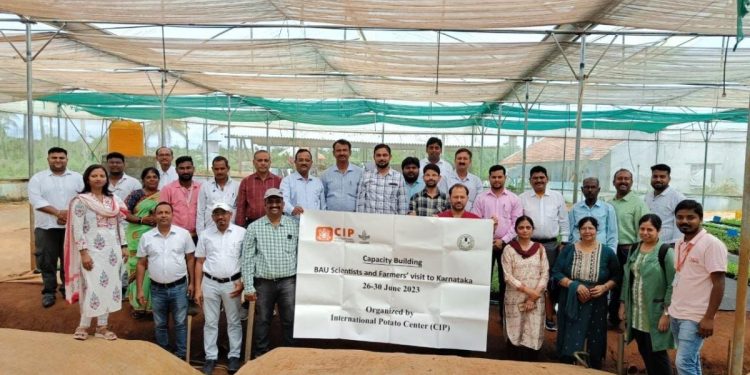Tags: #PotatoCultivation #KnowledgeTransfer #SustainableAgriculture #AgriculturalDevelopment #ExpertiseExchange #FarmersEmpowerment #FoodSecurity #Collaboration #InnovationInFarming #AgriculturalTraining
Exciting developments took place at the University of Horticultural Sciences (UHS) Bagalkot, Bengaluru, and Hassan campuses recently. A team of 20 members, including professors, potato scientists from Bihar Agriculture University in Sabour, and potato farmers, had the privilege of visiting the ARC (Advanced Research Center) facilities. This visit was made possible through the coordination efforts of Samarendu Mohanty, the Asia Regional Director at the International Potato Center. The aim was to foster knowledge exchange and provide hands-on training to enhance the potato cultivation practices in Bihar. This article highlights the significance of this visit and the positive impact it had on the participants and the agricultural community.
Key Focus: Potato Cultivation and Knowledge Transfer




The Visit to ARC Facilities:
During the visit, the Bihar team had the opportunity to explore the ARC facilities, which are known for their advanced research and development in potato cultivation. They interacted with private nurseries that sell ARC to farmers, enabling them to witness firsthand the benefits of this innovative approach. This experience served as a catalyst for the transfer of knowledge and expertise between the experts from UHS Bagalkot and the visitors from Bihar.
Hands-On Training in the Nursery:
One of the highlights of the day was the hands-on training in the nursery. The participants learned about the multiplication of ARC from mother plants, gaining valuable insights into the cultivation techniques employed at the ARC facilities. This practical experience allowed them to grasp the intricacies of potato farming and understand how to implement these techniques effectively. The training session also facilitated the exchange of ideas and best practices among the participants.
Visiting Farmers’ Fields:
To provide a comprehensive understanding of ARC’s impact, the visiting team had the opportunity to witness the actual cultivation of ARC crops for G0 production in farmers’ fields. This real-life exposure allowed them to observe the results of implementing ARC techniques, including improved crop quality, disease resistance, and higher yields. The visit to the fields not only served as a source of inspiration but also provided a platform for the visiting team to engage with local farmers and share their experiences.
Knowledge Sharing and Expertise Exchange:
The collaborative nature of the visit promoted knowledge sharing and expertise exchange between the experts from UHS Bagalkot and their counterparts from Bihar. The discussions and interactions revolved around sustainable farming practices, disease management, and post-harvest handling. The visiting team had the opportunity to seek guidance from experienced professionals, further strengthening their understanding of potato cultivation. This exchange of knowledge has the potential to significantly impact potato farming practices in Bihar and contribute to the overall agricultural development of the region.
Conclusion:
The visit by the Bihar team to the ARC facilities at UHS Bagalkot and the subsequent knowledge sharing and hands-on training have marked a significant milestone in the agricultural development of the region. The experience has not only empowered the participants with valuable insights and practical skills but has also laid the foundation for future collaborations and partnerships. The knowledge gained during this visit has the potential to revolutionize potato cultivation practices in Bihar, leading to improved yields, enhanced food security, and sustainable agriculture.
Future Steps:
To continue the momentum and ensure the effective implementation of the knowledge gained, it is essential to establish a follow-up mechanism. Regular communication channels should be established between the experts at UHS Bagalkot and the visiting team from Bihar. This will enable ongoing support, guidance, and feedback, helping to address any challenges that may arise during the adoption of new techniques. It is also crucial to organize similar knowledge exchange programs and hands-on training sessions in other regions, thereby expanding the impact and reach of such initiatives.







